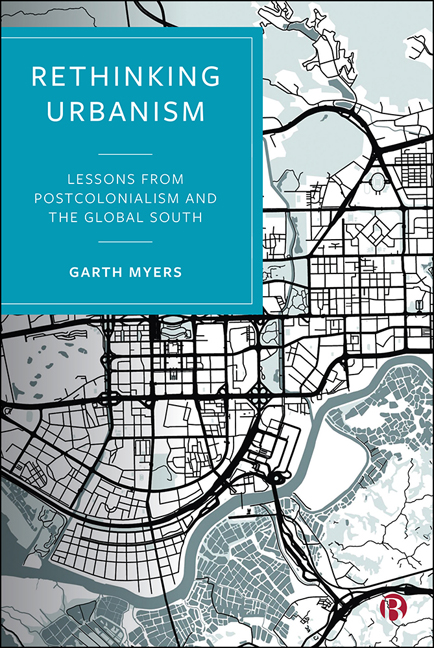Book contents
- Frontmatter
- Dedication
- Contents
- List of Figures
- List of Acronyms
- Glossary of Foreign Terms
- Acknowledgments
- Preface
- Introduction: Rethinking Urbanism from the South
- 1 Southern Processes of Planetary Urbanization in Hartford
- 2 Villages in the City: Patterns of Urbanization in the Pearl River Delta, Dakar, and Zanzibar
- 3 The Useful and Ornamental Landscapes of British (Post)colonialism
- 4 Submarine Urbanism: Cities People Make in ‘the Here and the Elsewhere’
- 5 ‘The Whole World Is Made in China’: Products and Infrastructures of Dis/connection
- 6 Urban Politics and Policy in a Southern Urban Planet
- Epilogue
- References
- Index
6 - Urban Politics and Policy in a Southern Urban Planet
Published online by Cambridge University Press: 03 March 2021
- Frontmatter
- Dedication
- Contents
- List of Figures
- List of Acronyms
- Glossary of Foreign Terms
- Acknowledgments
- Preface
- Introduction: Rethinking Urbanism from the South
- 1 Southern Processes of Planetary Urbanization in Hartford
- 2 Villages in the City: Patterns of Urbanization in the Pearl River Delta, Dakar, and Zanzibar
- 3 The Useful and Ornamental Landscapes of British (Post)colonialism
- 4 Submarine Urbanism: Cities People Make in ‘the Here and the Elsewhere’
- 5 ‘The Whole World Is Made in China’: Products and Infrastructures of Dis/connection
- 6 Urban Politics and Policy in a Southern Urban Planet
- Epilogue
- References
- Index
Summary
Introduction
Analysis of urban politics is in flux within global urban studies. For years, the predominant focus of global North urban studies in analyzing urban politics resided with understanding growth machines and urban regimes (Logan and Molotch 1987; Ross and Levine 2012; Stone 1989). Recently, there has been a general change in focus from discreet units at scale (that is a city government) to a ‘relational’ approach, because ‘a bounded city perspective has become increasingly problematized with a growing recognition that socio-spatial relations have transformed as a consequence of globalization processes’ (Davidson and Martin 2014: 3). More attention is paid to relationships between cities or to how urban areas’ politics are networked than to how finite governments, local party politics, or elite machines operate to run a city. This stress on relationality ‘has highlighted the increasingly open, porous and inter-connected configuration of territorial entities’ in politics (Ward 2014: 48). Such insights led to policy research emphases on ‘the movement… of policies from one place to another and how… the processes of comparison and learning compared’ (Ward 2014: 51).
What does this work look like, viewed from the global South? How do urbanists from the global South or those focused on its cities approach these arenas of scholarship? As with the infrastructure turn, some Southern or Southern-focused scholars utilize or build from priorities or theoretical leads of Northern scholarship, even when critiquing those leads. But there are also alternative starting places for thinking about urban politics and policies from Southern and postcolonial perspectives. This chapter is focused on five arenas of policy mobilities: participatory budgeting, bus rapid transit, enclave urbanism, sister-city relationships, and climate change adaptation/mitigation. The emphasis resides with how the book's case study cities intersect with these arenas.
Urban politics and policies in flux
This book's case study urban areas display different and changing configurations of government and governance maps, a diverse set of issues surrounding global relationality, distinctive formal and informal political landscapes, and variations in relative capacities for devising and implementing urban policies. In this segment, these cities’ experiences with governance and politics are contextualized as part of the pervasive uncertainty currently about the roles of the public, private, and popular sectors in governance, governing, and politics in global South urbanisms.
- Type
- Chapter
- Information
- Rethinking UrbanismLessons from Postcolonialism and the Global South, pp. 155 - 178Publisher: Bristol University PressPrint publication year: 2020

